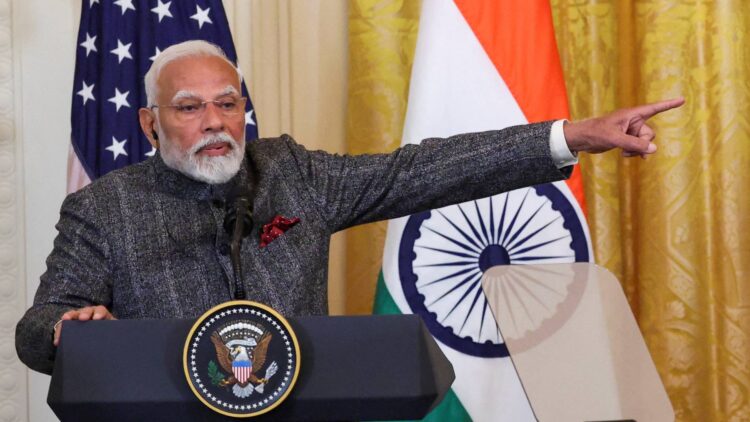According to officials, India halted plans to purchase Boeing aircraft, Javelin missiles, and Stryker vehicles. This is not the first time that long-standing partners have faced turmoil. Although trade and security cooperation have frequently been cited as a strength, recent events have demonstrated that disagreements over economic policy can have an impact on choices that go well beyond business. Decisions made now could influence alliances for years to come for nations hoping to preserve both their economic stability and their strategic independence.
India puts a stop to US weapons deals in the wake of Trump’s tariffs
New Delhi has put on hold its plans to procure new U.S. weapons and aircraft, according to three Indian officials familiar with the matter, in India’s first concrete sign of discontent after tariffs imposed on its exports by President Donald Trump dragged ties to their lowest level in decades. India had been planning to send Defence Minister Rajnath Singh to Washington in the coming weeks for an announcement on some of the purchases, but that trip has been cancelled, two of the people said.
Trump on Aug. 6 imposed an additional 25% tariff on Indian goods as punishment for Delhi’s purchases of Russian oil, which he said meant the country was funding Russia’s invasion of Ukraine. That raised the total duty on Indian exports to 50%, among the highest of any U.S. trading partner.
Amid tariff uncertainty, India signals that U.S. defence deals will be delayed rather than cancelled
The president has a history of rapidly reversing himself on tariffs, and India has said it remains actively engaged in discussions with Washington. One of the people said the defence purchases could go ahead once India had clarity on tariffs and the direction of bilateral ties, but “just not as soon as they were expected to.”
Written instructions had not been given to pause the purchases, another official said, indicating that Delhi had the option to quickly reverse course, though there was “no forward movement at least for now.” India’s defence ministry and the Pentagon did not respond to Reuters’ questions. Delhi, which has forged a close partnership with America in recent years, has said it is being unfairly targeted and that Washington and its European allies continue to trade with Moscow when it is in their interest.
Conflicting statements and mixed messages increase the uncertainty
India’s Ministry of Defence has formally disputed that the country’s current procurement intentions have changed, claiming that it is still looking into a number of defence alliances, including one with the US. Industry sources, however, claim that certain talks have paused, perhaps as a way of telling Washington that New Delhi demands better economic treatment if the defence alliance is to continue to be robust.
Though it is more difficult to sustain in practice, U.S. officials have stated a wish to shield the defence partnership from trade disagreements. Every political and economic consideration can affect how quickly decisions are made in high-level negotiations, particularly when billions of dollars are at stake in arms transactions. India is not the only nation going through this; Trump tariffs hit Swiss watch stocks hard as well.
While the rupture in U.S.-India ties was abrupt, there have been strains in the relationship. Delhi has repeatedly rebutted Trump’s claim that the U.S. brokered a ceasefire between India and Pakistan after four days of fighting between the nuclear-armed neighbours in May. Trump also hosted Pakistan’s army chief at the White House in the weeks following the conflict. In recent months, Moscow has been actively pitching Delhi on buying new defence technologies like its S-500 surface-to-air missile system, according to one of the Indian officials, and South Africa to aid exporters hurt by Trump tariffs.
GCN.com/Reuters


